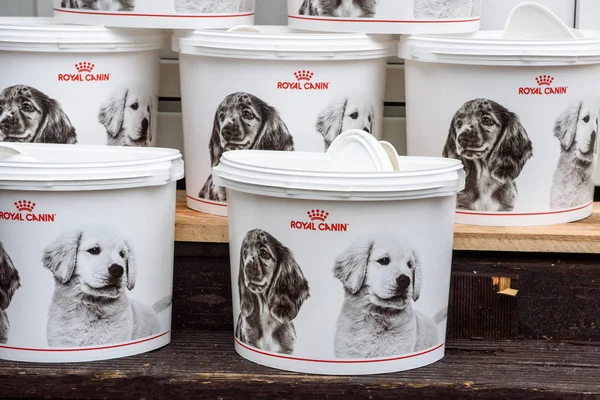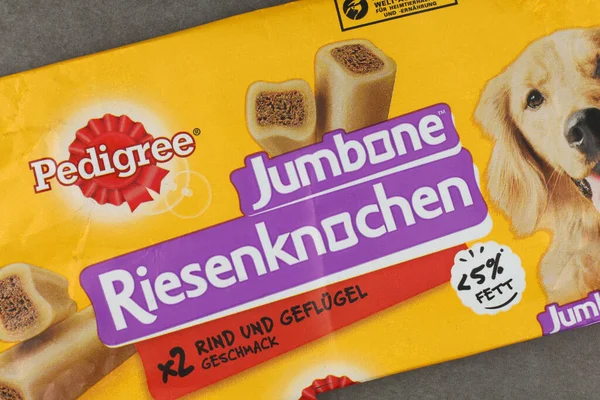
Here is something to make your jaw drop: in the past five years alone, nearly 69 million pounds of kibble have been recalled in the U.S. due to contamination or safety concerns. For devoted dog owners, that’s not just a statistic-it’s a wake-up call. While glossy packaging and clever marketing may make a brand seem premium, what’s inside the bag may tell an entirely different story.
Not all dog foods are created equal. Some fundamentally fail basic nutritional standards, are filled with questionable fillers, or have a troubled history of recalls. Others mislead with marketing terms that sound wholesome but have no legal definition. This listicle breaks down ten brand s ex perts say fall short, explaining why they’re risky and which red flags to watch for. By knowing the pitfalls-whether it is suboptimal nutrient levels, questionable sourcing, or misleading claims-pet parents can make informed choices to better support their dog’s long-term health.

1. Kirkland Dog Food – Poor Communication and Misaligned Feeding Guidelines
Rated a meager 0.8 out of 5 stars in Dr. Karen Becker’s 2025 review, Kirkland’s biggest mistake isn’t just in its formula, but in its complete lack of customer support. Experts observed that, should an issue arise, there is no direct method of contacting the company. Feeding recommendations are based on highly active working dogs, so the average household pet would likely put on excessive weight over time. When intended use does not align with actual feeding requirements, it leads to obesity, which is in turn linked to a number of problems, including joint issues, diabetes, and shorter lifespans. Dog owners who pay attention to proper nutrition need a brand that considers typical activity when developing feeding instructions.

2. Purina Pro Plan Veterinary Rx Joint – Insufficient Joint Support
In terms of the core promise that this prescription-labelled food makes regarding joint health, it scores only 1.5 out of 5 stars. According to experts, it contains much too little glucosamine to be of any real use, and owners may still have to buy supplements. While Purina is quite a well-known name, tapping into a product that does not deliver the stated benefit will not only waste money but delay proper care for dogs’ mobility issues.

3. Purina Dog Chow: Questionable Marketing and Controversial History
Stacked with a 1.3-star rating, Purina Dog Chow has received increased criticism for misleading imagerysuch as pictures of grilled chicken when there is no grilled chicken in the formula. More concerning is that the brand has claimed reports of over 1,000 pets getting sick in early 2024 were a hoax. For pet parents, trust is paramount. If a company’s marketing does not align with its ingredients, and if its crisis response raises eyebrows, it may be time to reconsider loyalty to the brand.

4. Blue Buffalo Life Protection – Low Score and Ingredient Concerns
Tied at 0.8 stars along with Kirkland, Blue Buffalo’s Life Protection formula called into question its ingredient quality and sourcing. Despite positioning itself as a premium offering, experts found issues that undermine health claims. It shows that marketing buzzwords, such as “life protection”, need to be underpinned by open sourcing and nutritional adequacy, rather than merely attractive packaging.

5. Royal Canin Veterinary Advanced Mobility Support – Insufficient Nutrient Delivery
This veterinary-labelled food, rated 1.7 stars, did not prove satisfactory in providing joint support for a 50-pound dog, according to the reviews. While Royal Canin is highly recommended by veterinarians, some of their specialty formulas may not live up to expectations for specific health benefits. Dog owners should always cross-check nutrient levels against their pet’s needs, especially when paying a premium for condition-specific diets.

6. Pedigree – Low Rating and Recall History
Pedigree earned 1.1 stars, as analysts cited concerns regarding poor ingredient quality and previous recalls. Parent company Mars Petcare recalled Pedigree Adult Complete Nutrition over metal contamination. Given the widespread availability of Pedigree, its shortcomings remind one that popularity often does not equate to safety and quality.

7. Fromm Chicken A La Veg – Low Protein and Excessive Synthetics
This popular brand’s Chicken A La Veg recipe, rated 1.5 stars, contains low protein levels and an unusually high number of synthetic additives-29 in total. Experts also questioned why broth was listed as the second ingredient. Such formulation choices can dilute the nutritional value of the food, making it less suitable for dogs needing robust protein intake for muscle maintenance.

8. Hill’s Rx Diet j/d Mobility – Ultra Low Expert Approval
This prescription diet reached a 0.9-star rating; in fact, expert Steve Brown said it deserved “-0.5” if possible. Despite the medical branding, it doesn’t have any medication in it and lacks the actual mobility support promised.Hill’s has also been associated with numerous recalls, including expanded events affecting 44 varieties because of elevated levels of vitamin D.

9. Acana Wholesome Grains – Misleading Marketing Terms
Scoring 2.7 stars, Acana’s use of “free run” to describe poultry was flagged as misleading, since it’s not equivalent to “free range,” which legally means outdoor access for at least 51% of the animal’s life. While its feeding instructions were applauded, the brand’s marketing language might confuse consumers. For the owner transparency-minded, clearly and legally defined sourcing terms are as important as nutrient quality.

10. The Farmer’s Dog Pork Recipe – Poor Feeding Guidelines and Overuse of Synthetics
A fresh food option, at 2.6 stars, received only 0.5 stars for feeding instructions. This diet was observed to often cause pets to become overweight, and the formula has a number of synthetic additives. Dr. Royal, an expert who has worked with celebrity clients, does not recommend this brand due to concerns regarding weight management and formulation choices that are not in agreement with its premium pricing. The right selection of dog food requires more than just knowledge of brand reputation and marketing claims.
These examples all tend to have low ratings due to poor nutrient delivery, misleading terms, or lack of transparency. Prioritizing AAFCO compliance, clear ingredient sourcing, and formulas tailored to a dog’s real needs can help ensure that owners avoid these pitfalls and invest in nutrition that really supports their companion’s health.The floodgates opened when the Supreme Court struck down the federal ban on sports betting in 2018. At the time, Americans legally wagered less than $5 billion annually. Last year, that figure hit $150 billion. But rather than merely growing, the market has reshaped itself into a national public health crisis, with young men bearing the brunt.


